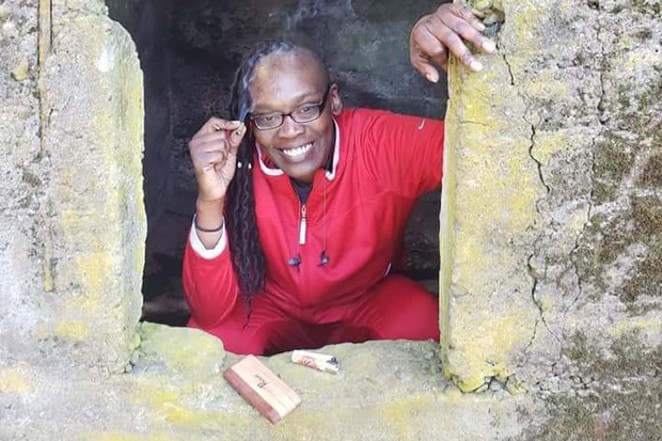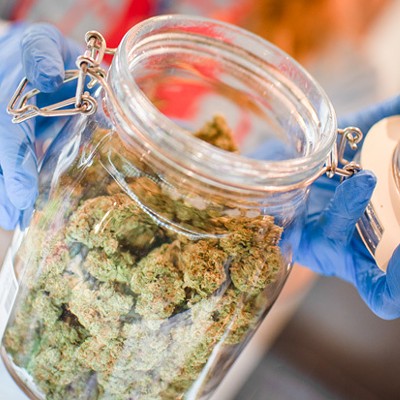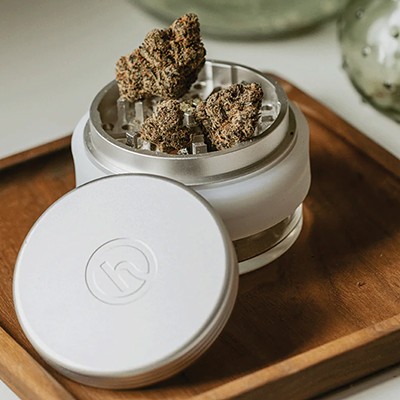With its explosive growth and lofty projections for the continuation of the same, the cannabis industry is a popular career choice. While operating stealth illicit basement grows, slinging sacks or loading up vans with hundreds of pounds of packs were once the sole options for working in cannabis pre-legalization, that's changed. Many of the OGs who now head up successful brands started out by doing the same things they do now—except in place of stock options and fawning press, they could have received heavy fines and jail time.
Be it working at legal and licensed grow warehouses, trimming and processing the flowers for market ready products, or selling all those goods through dispensaries, all require one thing: A Marijuana Worker Permit.

An MWP is the cannabis equivalent of what the Oregon Health Authority issues for cooks, restaurant workers and catering staff (Food Handlers Card) or what the Oregon Liquor Control Commission puts upon people pouring your drinks (Alcohol Service Permit). If a job involves even touching cannabis products—growers, trimmers, wholesalers, retailers—it requires an MWP.
That's a great deal of permits, with over 61,000 active, and a great deal of revenue for the state at $6.1 million.
An MWP costs $100, while an Alcohol Permit is $28.65 and a Food Handlers Card is $10. Applicants must be at least 21, provide valid ID and demonstrate a basic pot proficiency by getting at least 70% correct answers in an online 30-question test. (Could you take the test stoned and pass? Yes. Should you? Maybe, I'm not you.)
The degree of difficulty isn't a barrier for those eligible, but the $100 is. The pandemic has highlighted numerous inequities, and economic truth is that for some applicants the fee can be a deterrent.
Enter Portland resident Raina Casey, described as a "death doula, social justice advocate and cannabis consultant," from her profile as the founder of the Oregon Handler's Fund. OHF's mission statement is to pay for the applicant fees of MWPs for "Black and Non-Black People of Color. Because representation matters."
"There's no reason why all of these people, ready to go into the workforce, pass exams and background checks and everything, are just sitting there because they say they don't have $100 for the permit?" -Raina Casey
tweet this
Casey explains that she started the nonprofit after hearing numerous stories of applicants unable to raise the $100 fee. During the Black Lives Matters discussions and advocacy for diversity in the cannabis industry, Casey had an idea: What if individuals and cannabis businesses funded the costs of the permit fees?
"We go and support all the Black and brown dispensaries and cannabis businesses, and it's great to support our businesses, but we need help with the barrier of getting our people into the workforce." Casey writes on the website.
"There's no reason why all of these people, ready to go into the workforce, pass exams and background checks and everything, are just sitting there because they say they don't have $100 for the permit? There is something very wrong with that picture: You have all of these people who are qualified to work but they can't," she told cannabis website Weedmaps last year.
Casey has a deep appreciation and understanding of cannabis on numerous fronts, having begun her use prior to a stroke she experienced in 2012. Since that time, she's used medicinally to avoid using—and depending upon—a list of prescribed seizure medications related to the stroke. She's also experienced and incorporated cannabis as a tool in her work as a death doula, assisting those making their transition from this life.
She started OHF during quarantine, with some amazing results in its short life.
"To date we've awarded 16 permits, and recently acquired office space to accommodate our applicants. This allows us to award applicants as soon as they're ready, as opposed to having to wait to get their permit. The appointments don't usually last longer than 10 minutes—providing the applicant remembers their login and password!" Casey explains.
"We're hoping to expand our social media outreach to develop a network for BIPOC individuals in the industry. It's important to us that our applicants are allowed to use all of their transferable skills. We want them to do more than picking, trimming, and selling the weed."























